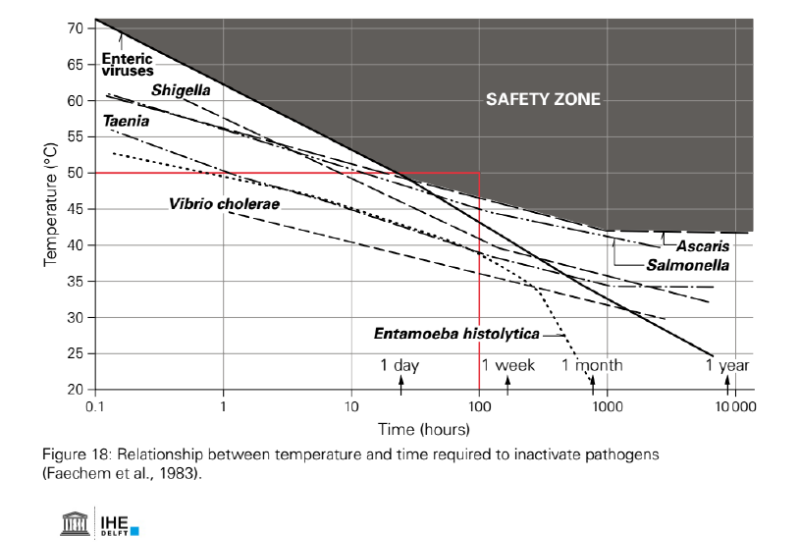- Forum
- categories
- Sanitation systems
- Toilets with urine diversion
- UDDTs (urine-diverting dry toilets)
- To deal with the problem of water getting inside UDDT (new design idea)
To deal with the problem of water getting inside UDDT (new design idea)
40.8k views
- samshancn
-
 Less
Less- Posts: 28
- Karma: 2
- Likes received: 11
Re: To deal with the problem of water getting inside UDDT (new design idea)
Dear Ben and Elizabeth,
I agree with Elizabeth's explainations. Actually we are talking about affordable UDDT toilets and their possible leaching concerns. All the brand UDDT toilets have no such problems. But pricewise, the rural people and people in underdeveloped regions can not afford to buy big brands like Separette, Sun-mar, Envirolet and Phoenix, etc. Some people DIY their own UDDT. Others use the ones manufactured by the local factories. These UDDT are cheap. But they are prone to water filling in to interfere with the biological composting process. Then, UDDT becomes a latrine of a dirty pit toilet again.
Besides the water issues, the carbon mixes are also a headache for some. In some places, due to scarce of sawdust, dry leaves and crop husks, the carbon mixes for keeping the toilet odorless and dry present a problem. Even though these things are available, if made into commosities, poor families don't like to spend money on the carbon materials. Some people use earth instead. But UDDT without carbon mixes doesn't work well and the curing time is lengthened.
Low quality UDDT causes a lot of sanitary worries. It requires daily maintenance and frequent changes of urine container and fece chamber, and cleansing and sterilizing. If the family don't take care of them, the toilests will not work properly.
I agree with Elizabeth's explainations. Actually we are talking about affordable UDDT toilets and their possible leaching concerns. All the brand UDDT toilets have no such problems. But pricewise, the rural people and people in underdeveloped regions can not afford to buy big brands like Separette, Sun-mar, Envirolet and Phoenix, etc. Some people DIY their own UDDT. Others use the ones manufactured by the local factories. These UDDT are cheap. But they are prone to water filling in to interfere with the biological composting process. Then, UDDT becomes a latrine of a dirty pit toilet again.
Besides the water issues, the carbon mixes are also a headache for some. In some places, due to scarce of sawdust, dry leaves and crop husks, the carbon mixes for keeping the toilet odorless and dry present a problem. Even though these things are available, if made into commosities, poor families don't like to spend money on the carbon materials. Some people use earth instead. But UDDT without carbon mixes doesn't work well and the curing time is lengthened.
Low quality UDDT causes a lot of sanitary worries. It requires daily maintenance and frequent changes of urine container and fece chamber, and cleansing and sterilizing. If the family don't take care of them, the toilests will not work properly.
Please Log in to join the conversation.
You need to login to reply- Elisabeth
-
- User is blocked
- Freelance consultant since 2012
Less- Posts: 3372
- Karma: 54
- Likes received: 932
Re: To deal with the problem of water getting inside UDDT (new design idea)
Hi Ben,
You said "I’m a little confused about the “water”. Do you mean H20 or urine?". I think the thread is about both. Some posts above have referred to:
- misplaced urine
- rainwater
- washwater from anal hygiene
- maybe water from cleaning the inside of the toilet
- anything else? Flooding water maybe?
It's been interesting reading all the various design ideas. Would be great to have a fool-proof UDDT...
Regards,
Elisabeth
You said "I’m a little confused about the “water”. Do you mean H20 or urine?". I think the thread is about both. Some posts above have referred to:
- misplaced urine
- rainwater
- washwater from anal hygiene
- maybe water from cleaning the inside of the toilet
- anything else? Flooding water maybe?
It's been interesting reading all the various design ideas. Would be great to have a fool-proof UDDT...
Regards,
Elisabeth
Dr. Elisabeth von Muench
Freelance consultant on environmental and climate projects
Freelance consultant on environmental and climate projects
The following user(s) like this post: samshancn
Please Log in to join the conversation.
You need to login to reply- Benno
-

- Installer - Phoenix composting toilets Manufacturer - Urine diverting composting privies, Vermicomposting systems, Environmental educator, Composting toilet consultant.
Less- Posts: 16
- Likes received: 2
Re: To deal with the problem of water getting inside UDDT (new design idea)
Hi folks … I’m a little confused about the “water”. Do you mean H20 or urine? We have been making and installing batch UDDT’s using the Separett Privy Seat to separate solid and liquid contributions. See: separett-usa-orders.com/collections/priv...-and-camping-toilets
The divided seat is used in a number of formats including a container based wheelie-bin system manufactured in Vermont, USA (see fullcirclecompost.org/?page_id=33 ) or built into a batch system for stand-alone restroom structures and tiny houses. In the batch systems, the smaller batches are transferred into larger sequestering bins that are filled in series, and that have been modified for aerobic storage until fully composted. The sequestering bins are water tight, but can be outfitted with a spigot and tell-tale moisture level indicator in case there’s intrusion. The solids in the bin are kept off the floor of the bin using an elevated false floor with a grate, landscape fabric and ABS snorkel vents that allows the bottom of the bin to become an aerobic “reservoir”. Any excess liquid passes through the fabric into the reservoir.
I was unaware that Clivus makes a UD system and especially one sized for tiny houses, but Separett, besides the privy seat, also manufactures a self-contained UDDT that would be appropriate for that purpose. We have had repeated success with this system (see www.separett-usa.com/index.php/waterless...iverting-toilet.html )
We have also had success converting the Phoenix Composting Toilet system to UD, but moisture may sometimes need to be added due to the drying action of the fan.
With the urine removed, it is safe to introduce composting worms into the solids to hasten composting and to help abate the pathogens. The urine is stabilized according to the protocols of The Rich Earth Institute (richearthinstitute.org).
Best … Ben
The divided seat is used in a number of formats including a container based wheelie-bin system manufactured in Vermont, USA (see fullcirclecompost.org/?page_id=33 ) or built into a batch system for stand-alone restroom structures and tiny houses. In the batch systems, the smaller batches are transferred into larger sequestering bins that are filled in series, and that have been modified for aerobic storage until fully composted. The sequestering bins are water tight, but can be outfitted with a spigot and tell-tale moisture level indicator in case there’s intrusion. The solids in the bin are kept off the floor of the bin using an elevated false floor with a grate, landscape fabric and ABS snorkel vents that allows the bottom of the bin to become an aerobic “reservoir”. Any excess liquid passes through the fabric into the reservoir.
I was unaware that Clivus makes a UD system and especially one sized for tiny houses, but Separett, besides the privy seat, also manufactures a self-contained UDDT that would be appropriate for that purpose. We have had repeated success with this system (see www.separett-usa.com/index.php/waterless...iverting-toilet.html )
We have also had success converting the Phoenix Composting Toilet system to UD, but moisture may sometimes need to be added due to the drying action of the fan.
With the urine removed, it is safe to introduce composting worms into the solids to hasten composting and to help abate the pathogens. The urine is stabilized according to the protocols of The Rich Earth Institute (richearthinstitute.org).
Best … Ben
Ben has been fascinated with bugs and worms since he was a kid. He’s been composting with worms and building worm bins since 1995. He offers worm composting workshops that are engaging, informative, and fun. Ben lives in the Pioneer Valley of western Massachusetts, USA, along with some of the finest soil in the world, and where he works with water conservation and food nutrient recovery systems.
Please Log in to join the conversation.
You need to login to reply- samshancn
-
 Less
Less- Posts: 28
- Karma: 2
- Likes received: 11
Re: To deal with the problem of water getting inside UDDT (new design idea)
Dear all,
Originally we discussed the ways of preventing water getting into the chamber of the UDDT. Now we focus on a new design idea. Harry's proposal is inspiring and workable. Using a solar pad or solar pan to hold the feces will definitely kill the pathogens and virus. So will the active heating measures. The natural composting process does the same, but takes longer time.
For UDDT toilets, convenience, available, sanitation and safety are the major concern. Faster pathogen elimination is good, but what is the next step? The feces remaining in the chamber in the same damp invironment?
I prefer collective thermo-composting to individual heating. But I am willing to join you guys to develop a new kind of UDDT.
Best regards,
Sam
Originally we discussed the ways of preventing water getting into the chamber of the UDDT. Now we focus on a new design idea. Harry's proposal is inspiring and workable. Using a solar pad or solar pan to hold the feces will definitely kill the pathogens and virus. So will the active heating measures. The natural composting process does the same, but takes longer time.
For UDDT toilets, convenience, available, sanitation and safety are the major concern. Faster pathogen elimination is good, but what is the next step? The feces remaining in the chamber in the same damp invironment?
I prefer collective thermo-composting to individual heating. But I am willing to join you guys to develop a new kind of UDDT.
Best regards,
Sam
Please Log in to join the conversation.
You need to login to reply- HarryTams
-
Less
- Posts: 31
- Likes received: 14
Re: To deal with the problem of water getting inside UDDT (new design idea)
Re: "The simplest way to increase temperatures in the FM storage area is to passively heat the chamber"
Agreed. This will work for more permanently built-in chambers. With evacuated tube solar hot water systems we can get water boiling. This is too hot and not desirable from a safety perspective.
The purpose for thinking of the silicone heating pad is for the more portable smaller manufactured UDDT like Ross Bowen's fiberglass pedestal or Clivus Multrum types that are often used in 'tiny houses' or boats. A thermostat controlled small silicon heating pad attached underneath the fecal matter container with two small wires connected to a solar panel, seems to a very simple solution with the main aim of killing of pathogens. It would also assist the drying process and evaporate some of that water.
Harry Tams
Tasmania
Agreed. This will work for more permanently built-in chambers. With evacuated tube solar hot water systems we can get water boiling. This is too hot and not desirable from a safety perspective.
The purpose for thinking of the silicone heating pad is for the more portable smaller manufactured UDDT like Ross Bowen's fiberglass pedestal or Clivus Multrum types that are often used in 'tiny houses' or boats. A thermostat controlled small silicon heating pad attached underneath the fecal matter container with two small wires connected to a solar panel, seems to a very simple solution with the main aim of killing of pathogens. It would also assist the drying process and evaporate some of that water.
Harry Tams
Tasmania
The following user(s) like this post: kharallaxman, samshancn
Please Log in to join the conversation.
You need to login to reply- Tore
-
- worked in sanitation for most of my life. taught plumbing. have plumbing and builders license, certified inspector in all facets of construction, PhD in public administration & have taught construction management in university, traveled numerous countries, Interest UDDT and sanitation & clean water
Less- Posts: 75
- Karma: 2
- Likes received: 27
Re: To deal with the problem of water getting inside UDDT (new design idea)
The simplest way to increase temperatures in the FM storage area is to passively heat the chamber. A simple glass window that faces south will heat the chamber to much higher temperatures during the day. An example is when you get into a car on a cold winter day it will be warm as long as the sun is shining through the windows. Glass can sometimes be found from old car windows. In my younger days when I was manufacturing passive water heaters we could achieve temperatures of 180 degrees F. when the outside temperatures were 30 degrees F. I would assume that a much simpler system could get temperatures to at least 120 degree F. I have seen one masters thesis where the author alludes to pathogen die off from temperature variations, hot during the day and cold at night. The heat stress seemed to lower the capability of the pathogens to survive. Does anyone else have any information on this?
Sanitation & water consultant in developing countries
The following user(s) like this post: kharallaxman
Please Log in to join the conversation.
You need to login to reply- kharallaxman
-
 Less
Less- Posts: 37
- Karma: 2
- Likes received: 8
Re: To deal with the problem of water getting inside UDDT (new design idea)
Thanks Harry,
And are there anything on heating through water heated by sun (such as solar water heater)? Otherwise an idea to explore.
And are there anything on heating through water heated by sun (such as solar water heater)? Otherwise an idea to explore.
Asia WASH Adviser, Terre des hommes (50%)
Please Log in to join the conversation.
You need to login to reply- samshancn
-
 Less
Less- Posts: 28
- Karma: 2
- Likes received: 11
Re: To deal with the problem of water getting inside UDDT (new design idea)
Hi, Laxman,
Thank you for your reply. I'll try to get the contact info for you asap. But I'm not sure their methods are fit for UDDT toilet patrogen-free applications. They are organic fertilizer producers, meaning they use heaters to kill patrogens and virus in the sludge matter on a larger batch.
Best regards.
Sam Shanc
Thank you for your reply. I'll try to get the contact info for you asap. But I'm not sure their methods are fit for UDDT toilet patrogen-free applications. They are organic fertilizer producers, meaning they use heaters to kill patrogens and virus in the sludge matter on a larger batch.
Best regards.
Sam Shanc
Please Log in to join the conversation.
You need to login to reply- HarryTams
-
Less
- Posts: 31
- Likes received: 14
Re: To deal with the problem of water getting inside UDDT (new design idea)
Ali-express has a water proof 12v heating pad with an inbuilt thermostat to 65 degree C (12 V 100 W, Silicone Heater Pad / Mat, Car Fuel Filter Heating, Diesel Heater, Flexible Heating Element, With Thermostat, Free Shipping). There are many types/sizes. Paired with a 12v 100w solar panel, the UDDT chamber good be heated by the sun. The heat pads cost about US$10-30 and a matching solar panel would cost approximately US$75 - 100 . There would be no ongoing energy costs for potentially pathogen free dehydrated fecal material. I have not tried this yet. I believe this concept could work (merely a hypothesis at this stage).
Harry Tams
Tasmania
Harry Tams
Tasmania
The following user(s) like this post: kharallaxman, samshancn
Please Log in to join the conversation.
You need to login to reply- kharallaxman
-
 Less
Less- Posts: 37
- Karma: 2
- Likes received: 8
Re: To deal with the problem of water getting inside UDDT (new design idea)
Dear Sam and All,
I have attached a chart showing relationship among time, temperature and pathogen inactivation - obtained from a course on solid waste management. As per this - 100 hours would be needed when the temperature is 50 degrees C and less than an hour when it's 70 degrees C.
Can more information be provided on how the heating is being done in China or how they could be contacted?
Regards,
Laxman
I have attached a chart showing relationship among time, temperature and pathogen inactivation - obtained from a course on solid waste management. As per this - 100 hours would be needed when the temperature is 50 degrees C and less than an hour when it's 70 degrees C.
Can more information be provided on how the heating is being done in China or how they could be contacted?
Regards,
Laxman
Asia WASH Adviser, Terre des hommes (50%)
Attachments:
-
 temptimean...tion.png
(Filesize: 127KB)
temptimean...tion.png
(Filesize: 127KB)
The following user(s) like this post: HarryTams
Please Log in to join the conversation.
You need to login to reply- Tore
-
- worked in sanitation for most of my life. taught plumbing. have plumbing and builders license, certified inspector in all facets of construction, PhD in public administration & have taught construction management in university, traveled numerous countries, Interest UDDT and sanitation & clean water
Less- Posts: 75
- Karma: 2
- Likes received: 27
Re: To deal with the problem of water getting inside UDDT (new design idea)
If you heat the fm to 70 then it should sterilize all of the fm. I am not familiar with any organics that can survive tempatures that high.
Sanitation & water consultant in developing countries
Please Log in to join the conversation.
You need to login to reply- Tore
-
- worked in sanitation for most of my life. taught plumbing. have plumbing and builders license, certified inspector in all facets of construction, PhD in public administration & have taught construction management in university, traveled numerous countries, Interest UDDT and sanitation & clean water
Less- Posts: 75
- Karma: 2
- Likes received: 27
Re: To deal with the problem of water getting inside UDDT (new design idea)
I am going through my material looking for the quote. Hopefully I can find it. If not I will have to recant my statement.
Sanitation & water consultant in developing countries
Please Log in to join the conversation.
You need to login to reply
Share this thread:
- Forum
- categories
- Sanitation systems
- Toilets with urine diversion
- UDDTs (urine-diverting dry toilets)
- To deal with the problem of water getting inside UDDT (new design idea)
Recently active users. Who else has been active?
Time to create page: 0.092 seconds







